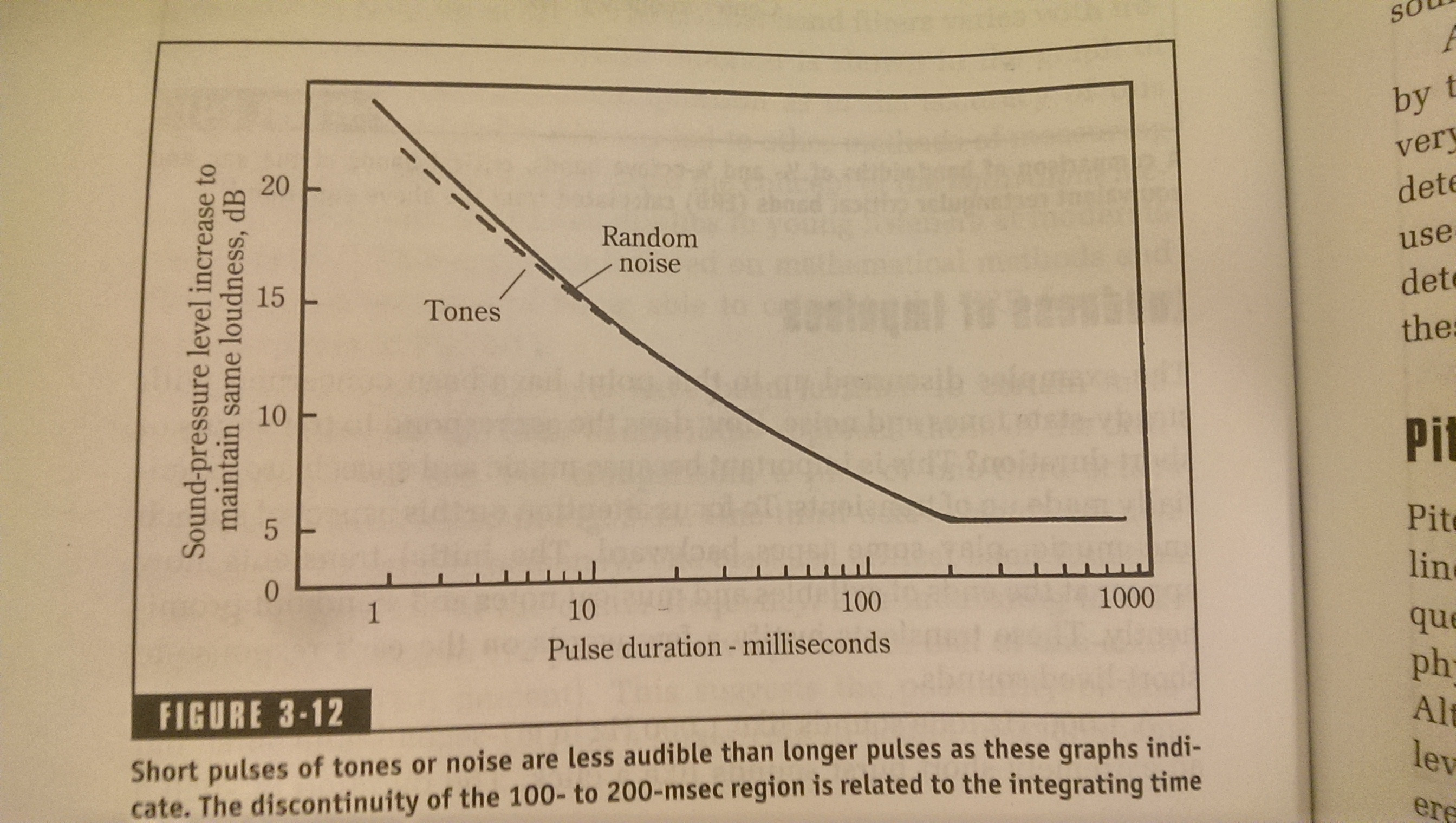The shortest length of time your eardrum can respond to a given sound depends on its frequency.
The higher the frequency, the shorter the response time and the shorter time required for the ear to register a perceptible noise.
Thus, for one who's highest audible frequency is, say 16kHz, the shortest length of time the sound would have to last is 0.0000625.
The shortest sound at the lower end of the range, say 15Hz = 0.0666secs. I would not perceive a sound at this frequency which lasted less than this time.
For any given frequency 1/'x' will give you the answer. Remember to convert kHz/MHz to Hz first.


